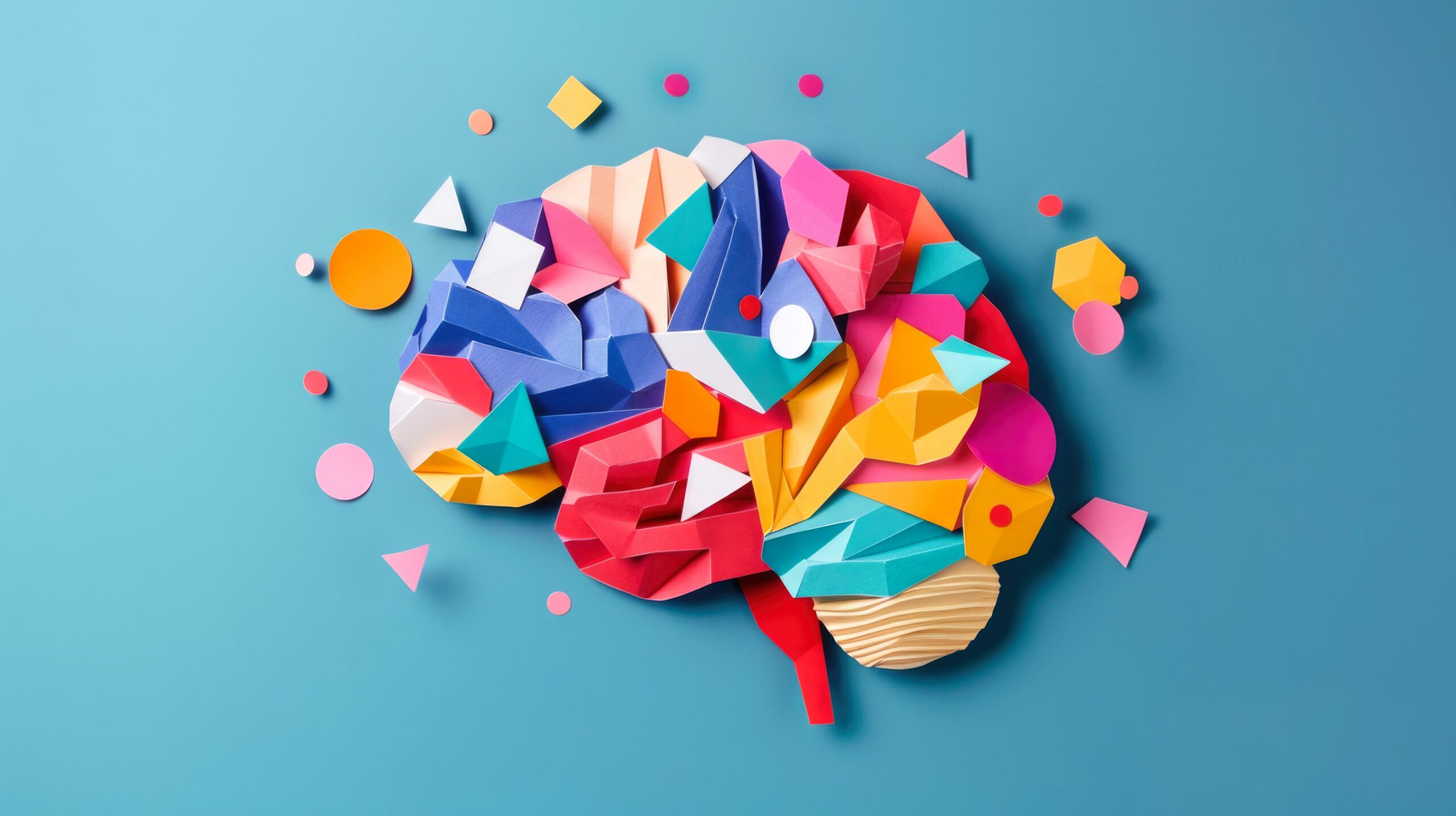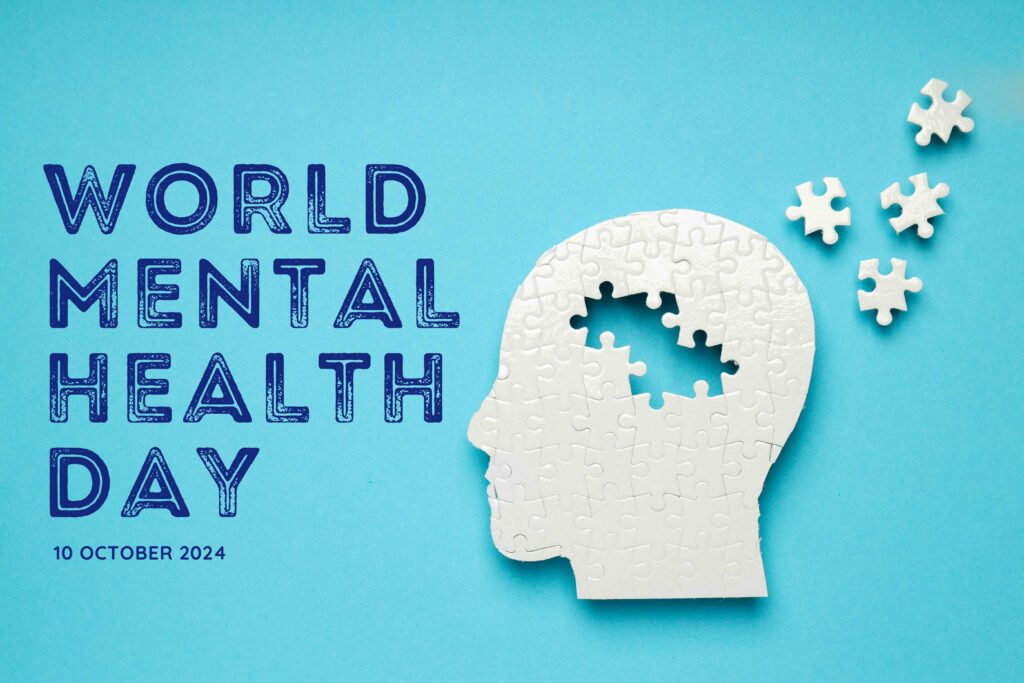Journée mondiale de la santé mentale : la santé mentale des Français en pleine transformation

L’info politique tout d’abord. Le stress, la dépression, et l’anxiété sont devenus des défis quotidiens pour une partie significative de la population, dans un contexte où le Premier ministre Michel Barnier envisage de faire de la santé mentale une « grande cause nationale » en 2025.
Les chiffres et les faits ensuite. En mars 2024, une enquête internationale Ipsos a révélé que 55% des Français réfléchissent régulièrement à leur santé mentale, une tendance en nette progression, particulièrement chez les femmes et la génération Z, où 63% considèrent ce sujet comme une priorité.
Un tiers des Français souffre de perturbations dues au stress et un quart a déjà traversé un épisode dépressif (étude Dentsu Insights).
12% des adultes de plus de 18 ans ont été touchés par la dépression au cours de la dernière année et 16% ont souffert d’anxiété. Plus préoccupant encore : 4% des adultes ont envisagé le suicide (Santé publique France).
Impact de l’inflation sur la santé mentale et le recours aux soins
L’inflation et la hausse du coût de la vie ont également un impact majeur sur la santé mentale des Français, avec des répercussions sur leur recours à la médecine et leur consommation de médicaments.
21% des Français utilisent des médicaments pour gérer leur stress ou leur dépression.
27% s’appuient sur leurs proches pour obtenir du soutien. Cependant, le coût des traitements pousse certains à pratiquer l’auto-médication ou à renoncer à des consultations médicales.

Un public vulnérable : les jeunes femmes et la génération Z
L’étude met en lumière que les jeunes femmes, principalement célibataires et aux revenus modestes, sont les plus touchées par le stress et la dépression. Ce public est conscient de sa vulnérabilité et accorde une importance particulière à sa santé et à son bien-être.
À quelques jours de la Journée mondiale de la santé mentale, le 10 octobre, cette cause est remise en avant récemment avec l’intervention du premier ministre Michel Barnier, qui souhaite en faire une « grande cause nationale » en 2025. Mars 2024, une enquête internationale Ipsos révèle que 55% des Français réfléchissent souvent à leur santé mentale, un chiffre en hausse, particulièrement chez les femmes et la génération Z, où 63% s’y intéressent.
A retenir :
8 958 000 Français (soit 19% des 18 ans et plus) souffrent régulièrement de stress, anxiété ou dépression
Source: CCS Healh 2022
Ces personnes sont conscientes de leur mauvaise santé, souffrant de fatigue, d’insomnie, de migraines, en plus du stress et de la dépression.
Ressenti en matière de santé
- Sans problème de santé, mais sensible 32%
- En mauvaise santé 23 %
Top 3 des problèmes de santé
Insomnie 81%
Maux de tête, migraines 80%
Fatigue, manque de vitalité 90%
Recherche d’informations
Ce public s’informe principalement auprès de son médecin, et consulte aussi ses proches. A noter que le pharmacien est aussi plébiscité sur les questions liées au stress/l’anxiété.
Sources d’information
- Le médecin (généraliste ou spécialiste) 49%
- Les proches 10 %
- Le pharmacien 8 %
Les solutions pour lutter
Bien qu’intéressés par les produits sains/bio, ce profil modeste recherche des économies et perçoit les médicaments comme coûteux, n’hésitant pas à comparer leurs prix en ligne.
- « Les médicaments coûtent trop chers » 68%
- « Je n’hésite pas à recommander un médicament qui a fonctionné pour moi » 60%
- « Les produits bio sont plus sains » 55 %
- « Internet permet d’avoir accès à une comparaison des prix de médicaments » 51 %
- « Si certains médicaments courants étaient disponibles en supermarché, je n’hésiterais pas à en acheter » 47 %
- « J’ai changé/Je suis en train de changer mon alimentation pour consommer moins de produits d’origine animale/plus d’aliments d’origine végétale. » 46 %
Les personnes dont la santé mentale est fragilisée par la dépression ou le stress sont principalement ouvertes à :
- l’ostéopathie 42 %
- l’homéopathie 33 %
- la psychologie 22 %
- la psychothérapie 15 %
- l’acupuncture 14 %
Impact de l’inflation
L’inflation affecte leur approche de la santé, les poussant à éviter certaines consultations, à pratiquer l’auto-médication et à renoncer à certains médicaments.
- « Je recherche des médecins sans dépassement d’honoraires » 58 %
- « Je ne fais plus certaines consultations « de prévention » » 43 %
- « Je privilégie l’auto-médication » 42%
Top 3 (%) des produits/services dont ils sont prêts à se passer pour faire des économies
- Produits de beauté pharmacie 54 %
- Produits naturels (plantes, huiles …) 38 %
- Médicaments sans ordonnance 37 %
World Mental Health Day: the mental health of the French is in a state of flux
Political news first. Stress, depression and anxiety have become daily challenges for a significant proportion of the population, at a time when Prime Minister Michel Barnier is planning to make mental health a ‘ major national cause ’ by 2025.
Then there are the facts and figures. In March 2024, an international Ipsos survey revealed that 55% of French people regularly think about their mental health, a trend that is clearly on the rise, particularly among women and generation Z, where 63% consider this subject to be a priority.
A third of French people suffer from stress-related problems and a quarter have already experienced an episode of depression (Dentsu Insights study).
12% of adults over 18 have been affected by depression in the past year, and 16% have suffered from anxiety. Even more worrying: 4% of adults have considered suicide (Santé publique France).
Impact of inflation on mental health and use of healthcare
Inflation and the rising cost of living are also having a major impact on the mental health of the French, with repercussions on their use of medical care and medication.
21% of French people use medication to manage their stress or depression.
27% rely on family and friends for support. However, the cost of treatment means that some people resort to self-medication or forgo medical consultations.
A vulnerable group: young women and generation Z
The study highlights that young women, mainly single and on modest incomes, are the most affected by stress and depression. This group is aware of its vulnerability and attaches particular importance to its health and well-being.
With World Mental Health Day just a few days away on 10 October, this cause has recently been brought to the fore again with the speech by Prime Minister Michel Barnier, who wants to make it a ‘major national cause’ by 2025. March 2024, an international Ipsos survey revealed that 55% of French people often think about their mental health, a figure that is on the rise, particularly among women and generation Z, where 63% take an interest.
Worth remembering:
8,958,000 French people (i.e. 19% of those aged 18 and over) regularly suffer from stress, anxiety or depression.
Source: CCS Healh 2022
These people are aware of their poor health, suffering from fatigue, insomnia and migraines, as well as stress and depression. Feelings about health
– No health problems, but sensitive 32%
– In poor health 23%
Top 3 health problems
Insomnia 81%
Headaches, migraines 80% Fatigue, lack of vitality
Fatigue, lack of vitality 90%
Looking for information
This group mainly seeks information from their doctor, and also consults their friends and family. It should be noted that pharmacists are also the most popular source of information on stress/anxiety.
Sources of information
– Doctor (general practitioner or specialist) 49%
– Relatives 10%
– The pharmacist 8%
Solutions to combat stress
Although interested in healthy/organic products, this modest profile is looking for savings and perceives medicines as expensive, not hesitating to compare their prices online.
– Medicines are too expensive’ 68% ’I don’t hesitate to compare prices online.
– I don’t hesitate to recommend a medicine that has worked for me’ 60% “Organic products are healthier” 60% “Organic products are healthier” 60% “I don’t hesitate to recommend a medicine that has worked for me” 60%
– Organic products are healthier’ 55%
– ‘The Internet allows us to compare drug prices’ 51%
– If some common medicines were available in supermarkets, I wouldn’t hesitate to buy them’ 47%
– I have changed/am changing my diet to eat less animal products/more plant-based foods’. 46 %
People whose mental health is weakened by depression or stress are mainly open to :
– osteopathy 42%
– homeopathy 33%
– psychology 22%
– psychotherapy 15%
– acupuncture 14%
Impact of inflation
Inflation is affecting their approach to health, leading them to avoid certain consultations, to self-medicate and to give up certain medicines.
– I look for doctors who charge no extra fees’ 58%
– I no longer go for certain ‘preventive’ consultations’ 43%
– I prefer to self-medicate’ 42%
Top 3 (%) products/services they are prepared to do without to save money
– Pharmacy beauty products 54%
– Natural products (plants, oils, etc.) 38%
– Over-the-counter medicines 37%